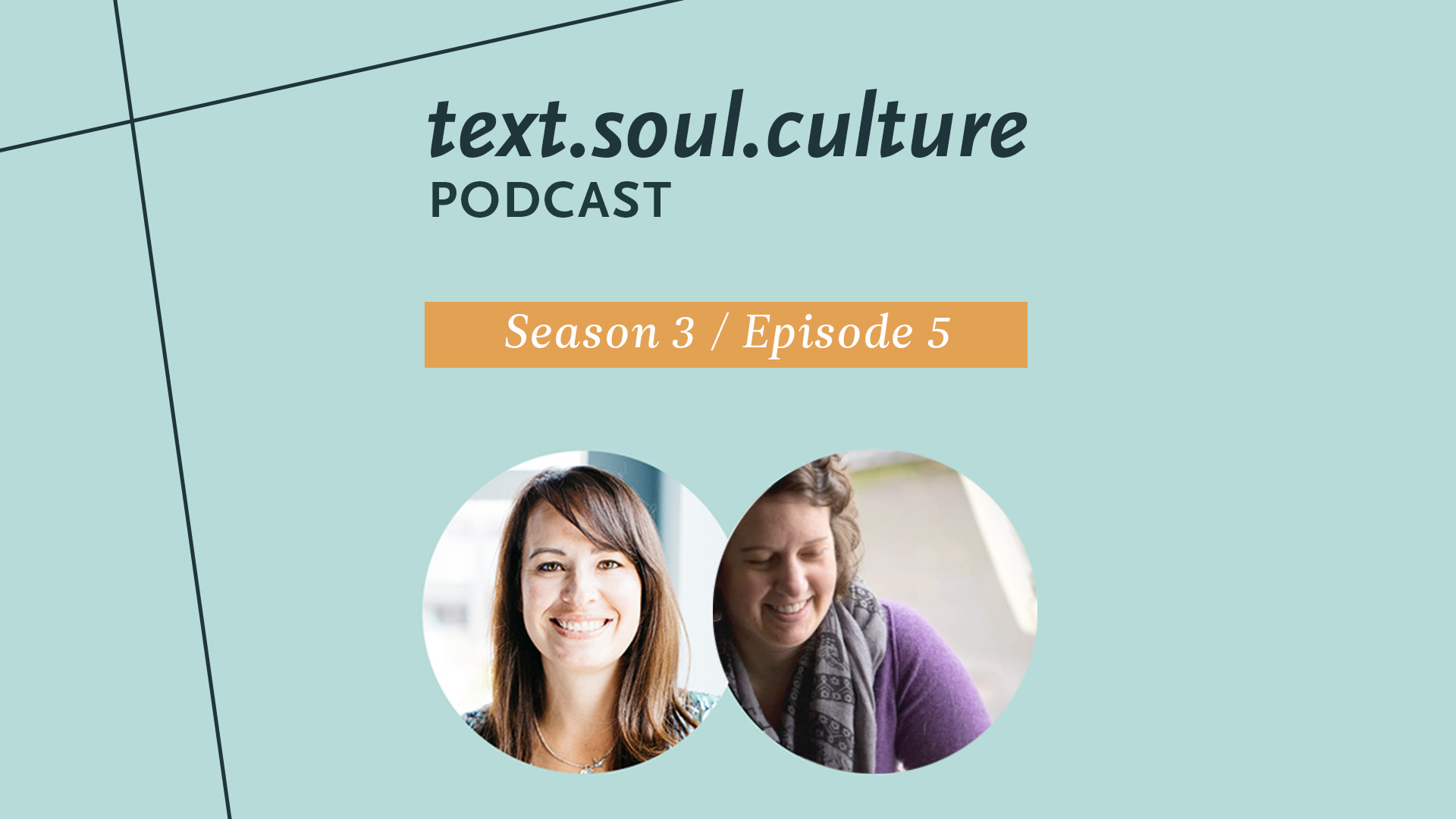On this episode of text.soul.culture, Shauna Gauthier, Alumni Outreach Coordinator, talks with Annie Mesaros (Master of Divinity, ‘18) about her work in what Annie refers to as political theology—connecting past and present iterations of American Christianity to current systems and dynamics in U.S. politics.
Annie: “While I’m concerned about what you would think of as politics—what would be in the political section of a newspaper—I’m also thinking about the politics of being human, the politics of church, the relational dynamics between people and between groups. That’s kind of what I mean by political in the broader sense.”
Annie is the host of God Help Us, a podcast exploring the long and often problematic story of Christianity in the United States, grounded in the hope that by better understanding where other perspectives are coming from, we can be better conversation partners across difference and contribute to sustainable, collaborative social change.” Her work is primarily concerned with two questions, she says: What do we believe it means to be human? And what do we believe is true about God? On God Help Us, Annie and her guests wrestle with how both of those questions inform our relationship to each other and our response to events in the world around us.
Annie: “God Help Us is about information, it’s about what are our commonly held beliefs in this country, how are they informed by our Christian heritage? […] I’m hoping, on a more meta level, that it’s also a way of modeling those conversations, so we can feel defensive and have all the human range of emotions while we’re disagreeing with each other and still continue to talk to each other.”
Much of Annie’s work can be connected to the category of spiritual darkness, which was the focus of her Integrative Project at The Seattle School, “Making a Home in the Dark.” In our 2018 Integrative Project Symposium, Annie offered this insight into what draws her to working with spiritual darkness: “I think that in those times when everything has been stripped away, we also lose hold of the lies we have believed about ourselves, about each other, and about God. So I’m left only with my desire and the question of what to do with it, and the question of what to do with this new reality. And I find that the only option really is to come home to myself. And in those places, I find that God is waiting for me there.” You can watch the full presentation here.
Annie: “When we recognize that we have put our faith in something like patriarchy, it doesn’t let us go easily. These periods of darkness, of feeling completely lost and at our wits’ end, both communally and individually—it forces us to give up hope in what we’ve put our hope in. And that is this great gift that we can then decide we’re going to do something different now.”
In an era of fragmented relationships—and, therefore, fragmented politics—we are deeply grateful for the insightful, far-reaching conversations Annie is hosting. Here’s to listening deeply, speaking boldly, and returning again and again to our connections with each other.
Resources to Go Deeper
- You can learn more about Annie’s work, including God Help Us, at anniemesaros.com. And if you have ideas for future topics or guests on the podcast, email godhelp.podcast@gmail.com.
- As this conversation turned to purity culture, it brought to mind an article by Lauren Sawyer (MA in Theology & Culture, (‘14). Shauna asked Lauren to record an excerpt for this episode, and here’s the full article from Feminist Studies in Religion: “Female Masturbation as Resistance: Responding to the ‘Harm and Damage Rhetoric’ of Purity Culture.”
- To be fair, Annie’s reference to Lady Bird is more tangential than thematic. But it really is a great film!
- Shauna references “The Weatherman,” an episode from NPR’s Invisibilia podcast about the relationship between uncertainty and dogmatism, and what we do when we don’t know what to do.
- Annie mentions being inspired by this article from Tyrone Beason at the Seattle Times: “‘Who are you becoming?’ Why America needs Michelle Obama’s message now”
- Just in time for summer, we got a bunch of book recommendations from Annie. Happy reading!
- Sex, God, and the Conservative Church: Erasing Shame from Sexual Intimacy by Dr. Tina Schermer Sellers
- Sex, Mom, and God: How the Bible’s Strange Take on Sex Led to Crazy Politics—and How I Learned to Love Women (and Jesus) Anyway by Frank Schaeffer
- Unashamed: A Coming-Out Guide for LGBTQ Christians and Refocusing My Family: Coming Out, Being Cast Out, and Discovering the True Love of God by Amber Cantorna
- Beyond God the Father: Toward a Philosophy of Women’s Liberation by Mary Daly
- Embracing Hopelessness by Miguel A. de la Torre


